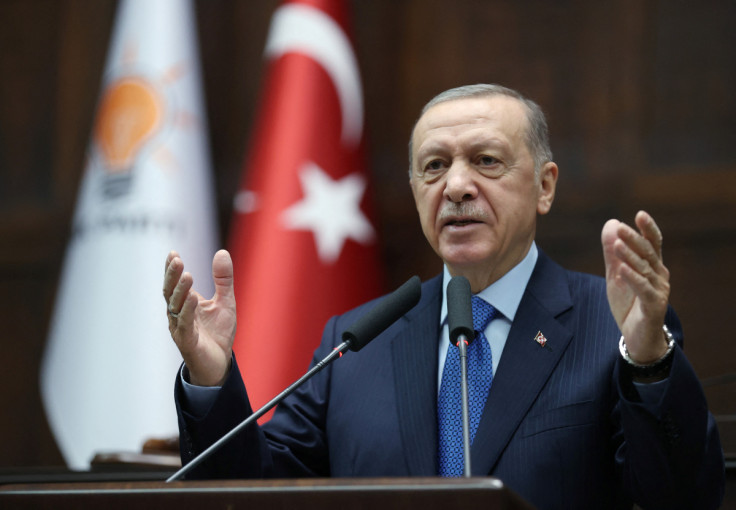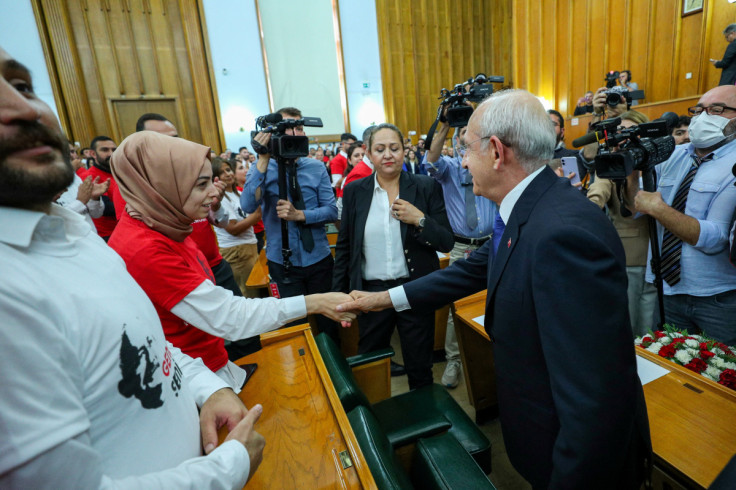Islamic Headscarf Returns To Heart Of Turkish Political Debate

Turkey's government and opposition both vowed legal steps to enshrine women's right to wear Islamic headscarves on Wednesday, restoring to the heart of political debate ahead of next year's elections an issue which once caused deep divisions.
The proposals came as President Tayyip Erdogan's ruling AK Party and the opposition pushed policy ideas before presidential and parliamentary elections next year with an eye on opinion polls which suggest the outcome is still in the balance.
The headscarf issue was for years a focus of fierce discord in Muslim but secular Turkey but ceased to be so after reforms pushed through by Erdogan's Islamist-rooted AK Party (AKP) during its two decades in power.
But main opposition leader Kemal Kilicdaroglu unexpectedly revived the issue this week, announcing the planned legislation amid efforts by his secularist CHP party to reach out to devout Turks, among which the CHP has traditionally had little support.
Erdogan frequently targets the CHP over its past opposition to broadening headscarf freedoms and spoke at length on the issue in a speech to AKP deputies in parliament on Wednesday.
"Come and let's solve this, not just as a law but at the constitutional level," Erdogan said in response to the CHP, while insisting the issue had been resolved under his rule.
He did not elaborate but appeared to be suggesting enshrining in the constitution the right of women to wear the headscarf.
ELECTIONS LOOM
The moves come after recent polls put Kilicdaroglu, the likely opposition presidential candidate, ahead of Erdogan. A recent poll by the closely-watched Metropoll however showed the ruling alliance five points ahead of a main opposition alliance.
Kilicdaroglu gave a cautious welcome to Erdogan's proposal on Wednesday, saying: "If there is no cunning agenda behind it, of course, we are ready to give all kinds of support to your proposal on rights and freedoms."
Turkey's parliament lifted a ban on female students wearing the headscarf at university in 2008 in a move championed by Erdogan and which CHP lawmakers including Kilicdaroglu had sought unsuccessfully to block in the constitutional court.
The then-powerful secular establishment, including army generals, judges and university rectors, saw the headscarf as a symbol of radical Islam and a threat to the secular order.
In 2013, Turkey lifted a ban on women wearing headscarves in state institutions under reforms which the government said were designed to bolster democracy.



© Copyright Thomson Reuters {{Year}}. All rights reserved.





















